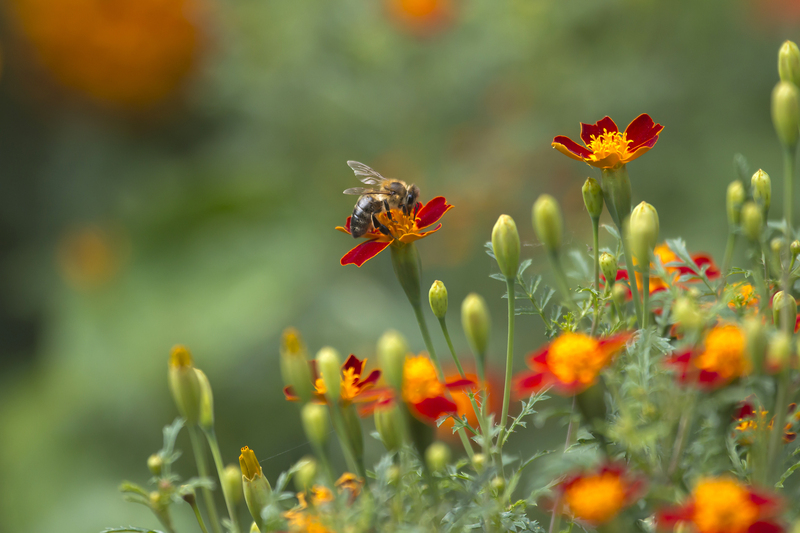Discover 3 Proven Tips for Effective Weed Control
Posted on 22/06/2025
Discover 3 Proven Tips for Effective Weed Control
Struggling with persistent weeds in your garden or lawn? Weeds can rapidly overtake healthy plants, steal nutrients, and diminish the beauty of your landscape. Fortunately, there are powerful and simple strategies to reduce weed proliferation dramatically. In this comprehensive guide, you'll learn three proven tips for effective weed control that will help you achieve a lush, healthy, and weed-free outdoor space. From prevention to natural methods, let's dive into practical ways to banish weeds for good!

Understanding the Challenge of Weed Management
Why are weeds such a persistent problem? Weeds are hardy, adaptable plants that compete with your desired vegetation for sunlight, water, and nutrients. Whether you're a home gardener, lawn enthusiast, or managing commercial landscapes, knowing effective weed control techniques is vital to maintain a beautiful environment. Before exploring our expert tips, let's review why weed control matters and recognize the types of weeds you may face.
The Impact of Weeds on Your Landscape
- Reduced growth for lawns and garden plants
- Nutrient and water competition
- Pests and diseases attracted by weed infestations
- Allergy potential from weed pollen
- Lower curb appeal for your property
Mastering methods for effective weed management not only improves the health of your greenery but also decreases maintenance time and costs throughout the season.
3 Proven Tips for Effective Weed Control
Ready to tackle those relentless invaders? Here are three tried-and-true methods that will help you accomplish superior weed control in your garden, lawn, or landscaped spaces.
Tip 1: Consistent Mulching for Weed Suppression
Mulching is often referred to as the gardener's secret weapon. Beyond mulching's ability to retain soil moisture and improve nutrients, it is a game-changer for weed prevention. Here's why mulching is one of the most effective techniques for weed control:
- Blocks sunlight from reaching weed seeds, preventing germination
- Adds a protective barrier that makes it harder for weeds to push through
- Organic mulches gradually improve soil health and structure
- Decorative mulches enhance the visual appeal of garden beds
How to mulch for effective weed management:
- Choose the right mulch type--organic options like shredded bark, straw, or wood chips are best for gardens; stone or rubber mulches suit pathway and permanent beds.
- Apply a layer of mulch that's 2-4 inches thick. Too thin and weeds poke through; too thick and you might suffocate plant roots.
- Keep mulch away from the stems of plants to prevent rot and allow airflow.
Bonus tip: Refresh mulch annually to maintain a dense, weed-suppressing layer and improve your garden's appearance!
Tip 2: Smart Cultural Practices and Lawn Care
Did you know that your lawn care habits can substantially impact weed growth? Proper lawn maintenance is one of the easiest methods for effective weed control, especially against common lawn weeds like dandelions, crabgrass, and clover.
- Mow your lawn at the correct height. Taller grass shades soil, making it harder for weed seeds to sprout.
- Don't scalp your lawn--removing more than 1/3 of blade height can stress grass and create openings for weeds.
- Water deeply but infrequently to promote robust root systems and discourage shallow-rooted weeds.
- Fertilize based on your grass type's needs; healthy turf easily outcompetes weeds.
- Overseed thin patches in the fall or spring to fill bare spots before weeds move in.
Best practices for weed-free gardens:
- Rotate crops annually in vegetable plots to disrupt weed life cycles.
- Practice dense planting; spacing plants closely leaves less room for weed growth.
- Regularly inspect your garden and pull small weeds by hand before they spread.
In summary, solid cultural practices form the foundation of long-term weed prevention!
Tip 3: Timely and Targeted Weed Removal
Despite your best preventive measures, stubborn weeds will occasionally pop up. Timely intervention and targeted removal are critical aspects of effective weed control techniques:
- Remove weeds when they're small--it's quicker and prevents seeding.
- Hand-pull after rain or watering; moist soil makes it easier to extract the entire root.
- Use specialized weeding tools (like a dandelion fork or hoe) for deep-rooted species.
- Dispose of weeds properly, ideally in yard waste bins, not compost piles (some may re-root or spread seeds).
- If needed, spot-apply eco-friendly herbicides for difficult or invasive weeds--always follow label instructions and aim for minimal, precise use to avoid harming desired plants.
Pro tip: Schedule a regular "weed patrol" walk through your garden or yard. Catching weeds early is the easiest way to keep them under control and prevent a daunting invasion!
Bonus: Other Effective Weed Control Strategies
While the three primary tips above form the cornerstone of effective weed management, you can enhance your results with additional smart strategies:
1. Landscape Fabric and Barriers
Consider installing landscape fabric beneath mulch in beds or under gravel for walkways to create an extra weed-blocking layer. Just ensure you cut holes for desired plants and avoid plastic, which can impede water movement and soil health.
2. Pre-Emergent Herbicides
These products target weed seeds before they sprout. Apply in early spring or fall for best results in lawns and flower beds. Be sure to select a pre-emergent tailored to your grass and weed types for maximum efficacy.
3. Natural Non-Chemical Options
- Boiling water: Pour directly onto cracks in sidewalks or driveways to kill weeds naturally.
- Vinegar and salt: Use carefully as a contact spray for isolated weeds but prevent contact with desirable plants.
- Solarization: Involves covering infested areas with clear plastic to "bake" weeds and seeds using solar heat--effective for large beds before planting.

Common Questions About Weed Control
Let's address some frequent questions to help you achieve even more effective weed control:
How often should I weed my garden or lawn?
Regularity is key! Weekly walks and immediate hand-pulling work wonders. For larger landscapes, monthly checks may be sufficient if you use mulch and dense planting.
What is the safest method for weed control around pets and children?
Opt for natural weed control methods like mulching, hand-pulling, and boiling water treatments. If using any herbicide, strictly follow safety guidelines and keep children and pets off treated areas until fully dry.
Is mulching better than herbicides for weed prevention?
Absolutely! Mulching is an eco-friendly, sustainable, and attractive solution that provides long-term control without chemicals.
What's the best time of year for weed control?
Spring and fall are ideal, as most weeds either start sprouting or are preparing to go dormant. Early action ensures weeds never gain a foothold in your garden or lawn.
Final Thoughts: Achieve a Weed-Free Landscape the Smart Way
Don't let weeds steal the spotlight from your beautiful plants! By following these three proven tips for effective weed control--mulching, adopting sound cultural practices, and timely removal--you'll enjoy a greener, healthier, and more vibrant landscape all season long. Supplement your efforts with landscape barriers or eco-friendly treatments for especially stubborn weeds, and remember: consistency is your best ally against the weed invasion.
Embrace these expert strategies and turn your outdoor space into a showcase of health and beauty--free from pesky intruders. With a thoughtful weed prevention routine, you'll save time, protect your investment, and enjoy your garden to the fullest.
Start implementing these effective weed control tips today--and say goodbye to weeds for good!
```Latest Posts
Unleash the Joy of Gardening with Your Dog
Proven Techniques for Nurturing Orchids Successfully
Vital Garden Tools for Enthusiasts of the Outdoors
Grow a Kid-Friendly Paradise in Your Garden
Crafting Calmness: Zen Garden Designs for a Harmonious Outdoor Space



